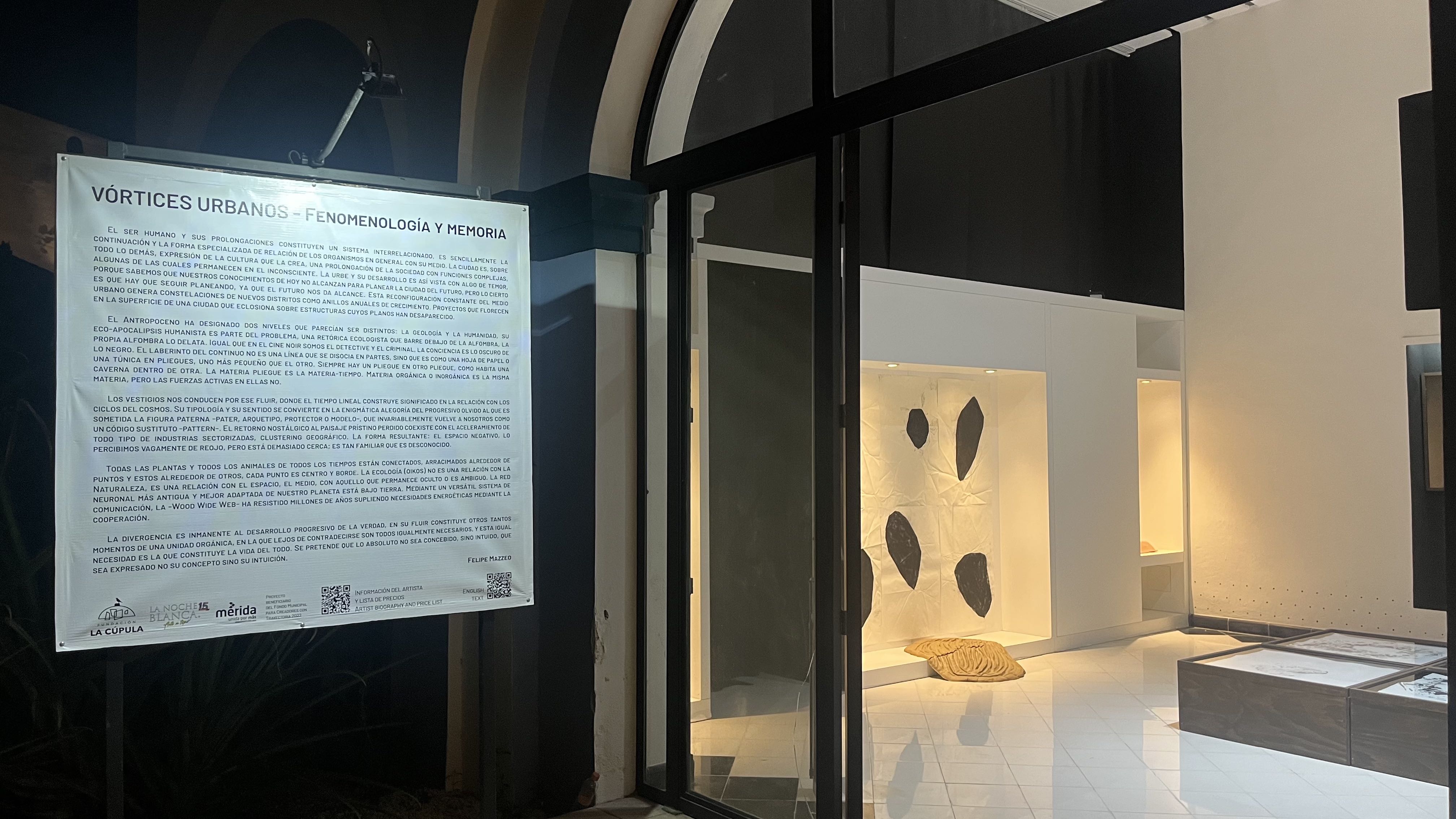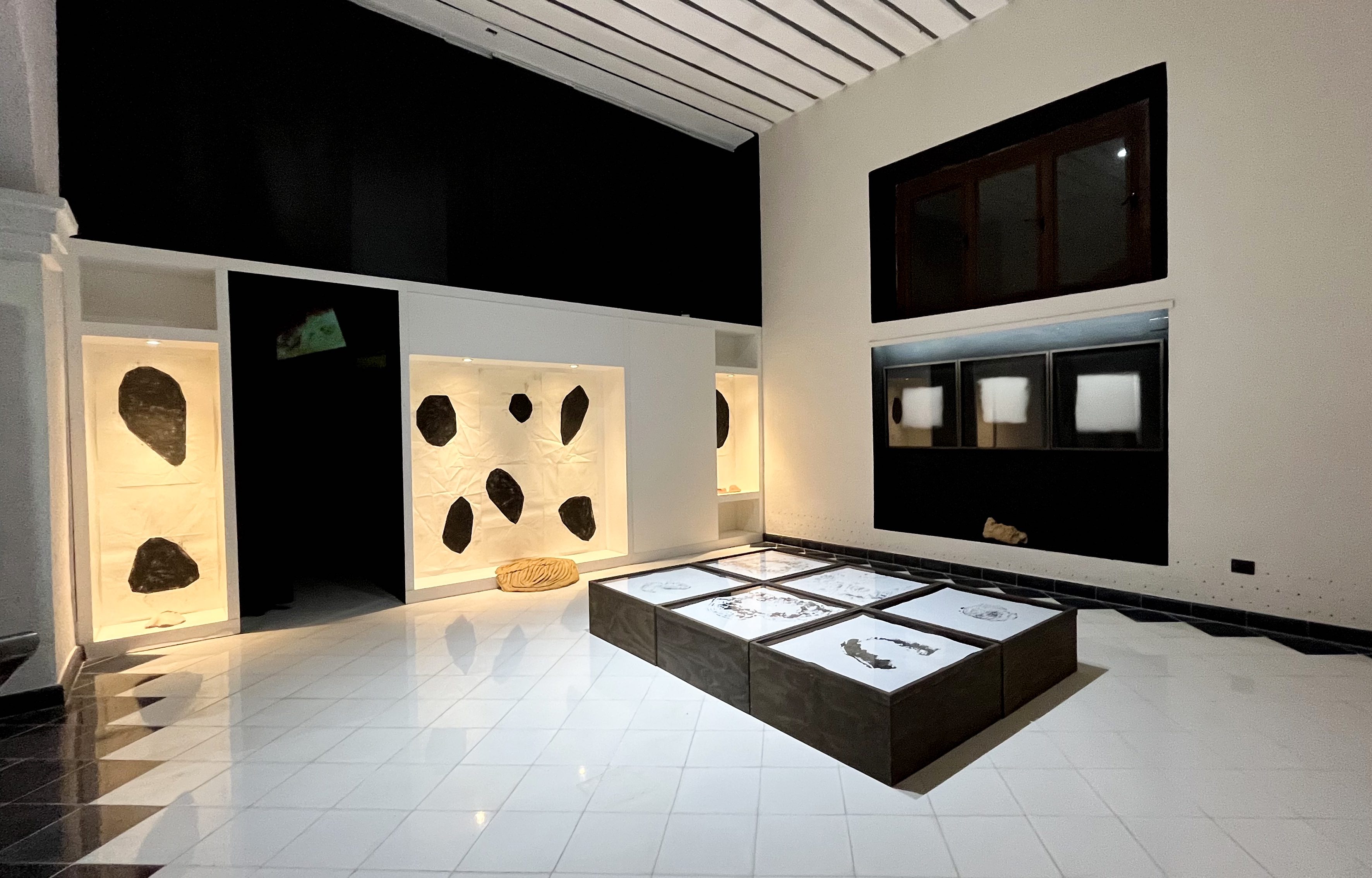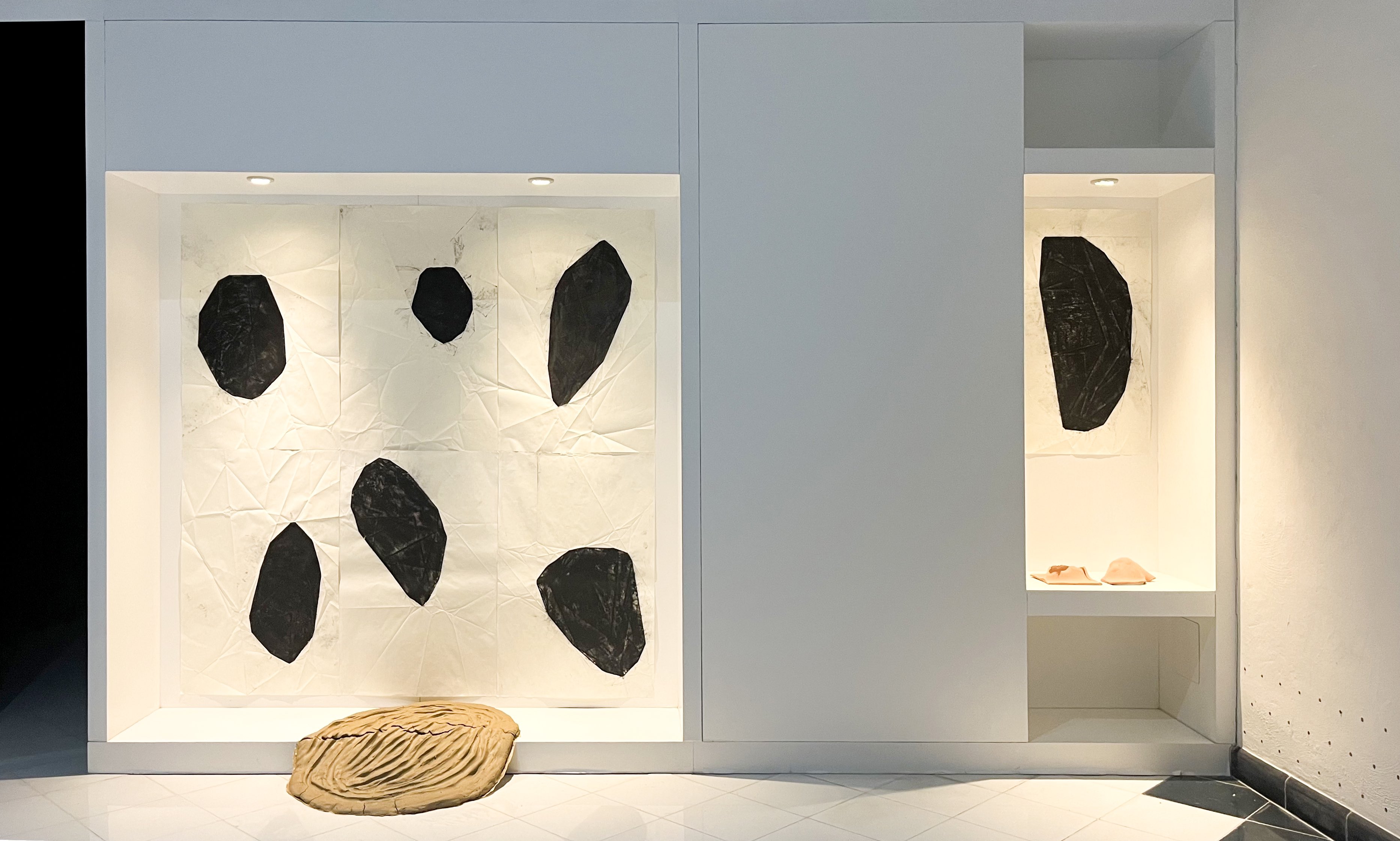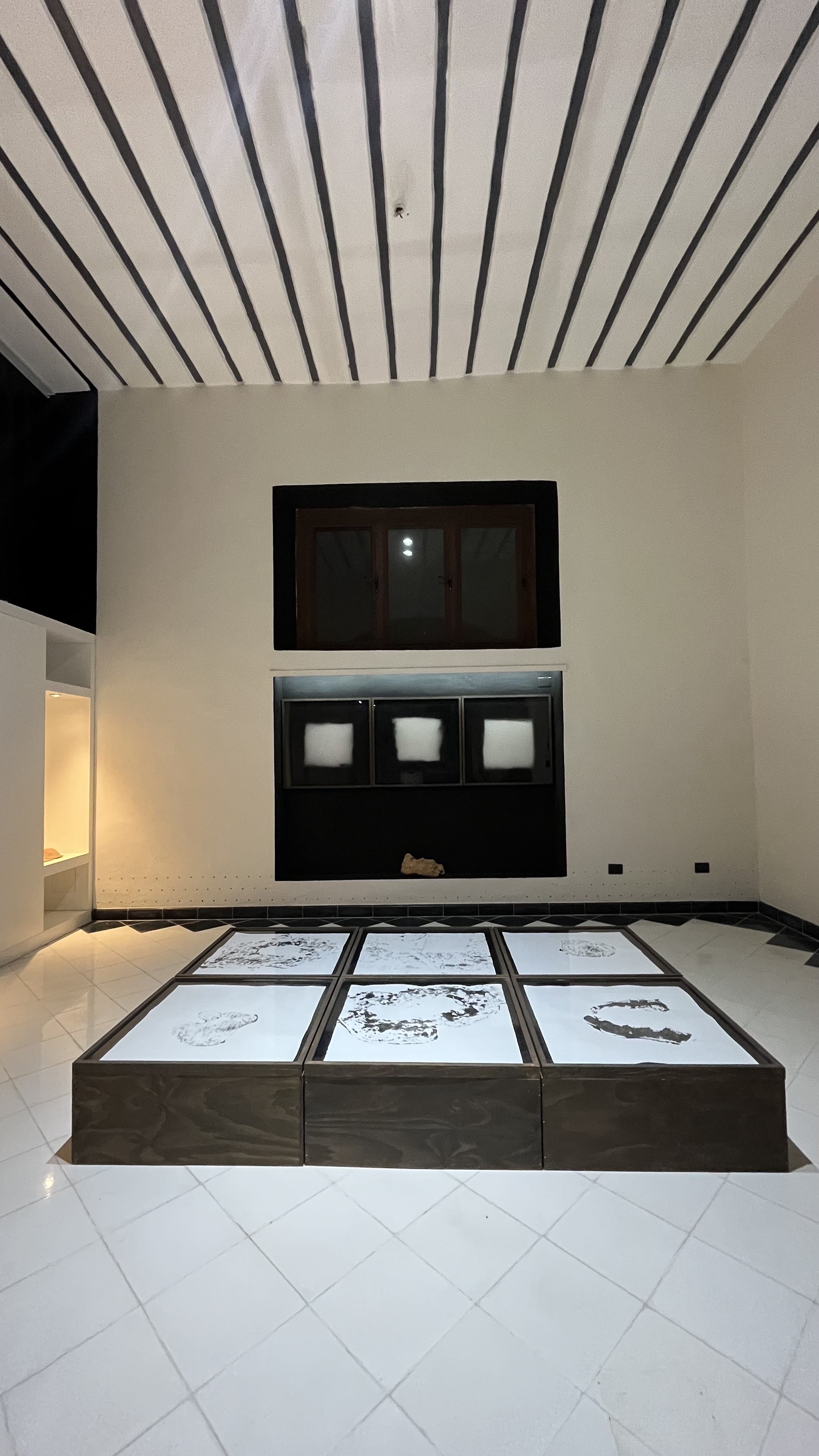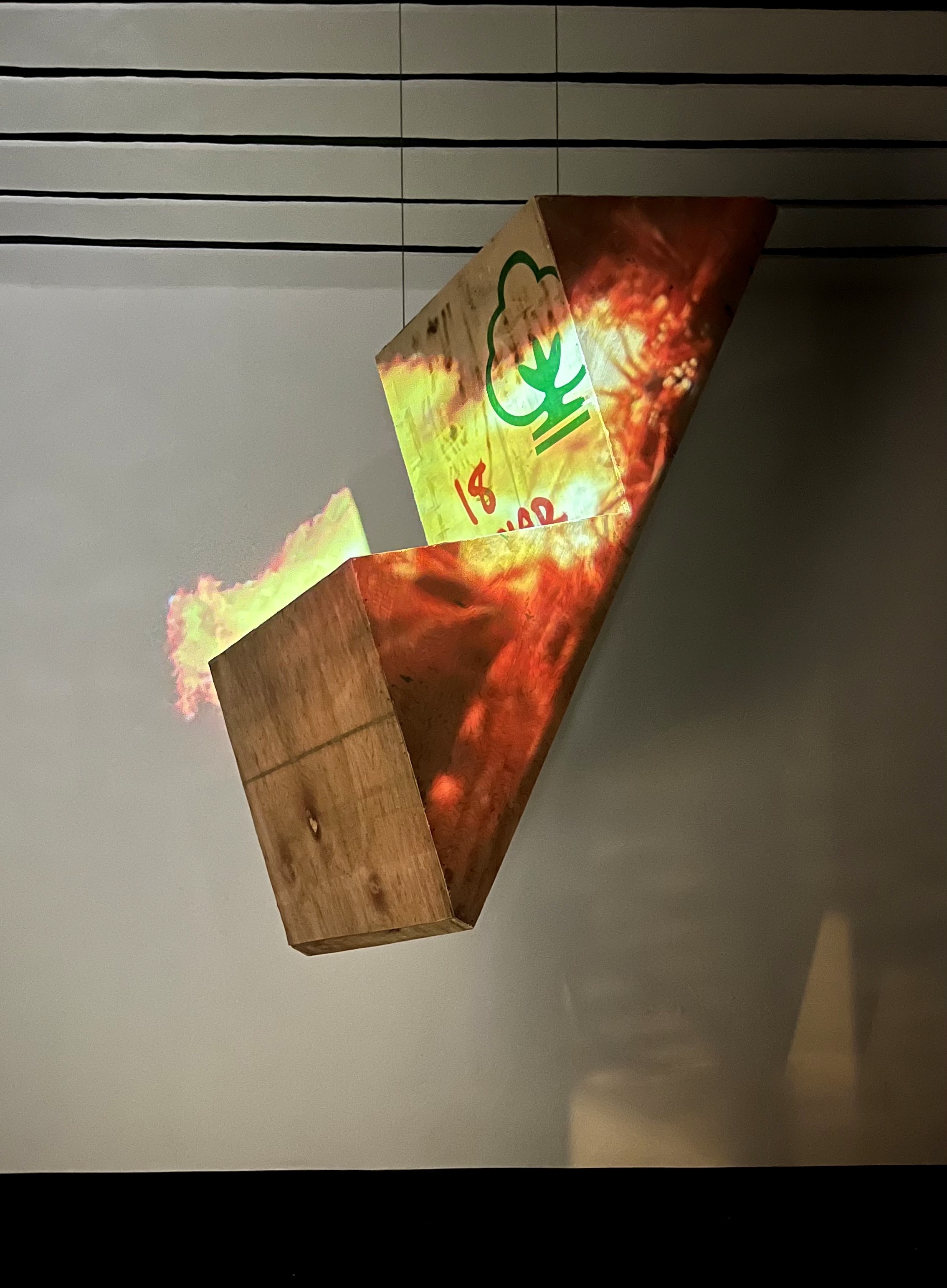Vórtices Urbanas
Fenomenología y Memoria
Felipe Mazzeo
13.05.2023
El ser humano y sus prolongaciones constituyen un sistema interrelacionado, es sencillamente la continuación y la forma especializada de relación de los organismos en general con su medio. La ciudad es, sobre todo lo demás, expresión de la cultura que la crea, una prolongación de la sociedad con funciones complejas, algunas de las cuales permanecen en el inconsciente. La urbe y su desarrollo es así vista con algo de temor, porque sabemos que nuestros conocimientos de hoy no alcanzan para planear la ciudad del futuro, pero lo cierto es que hay que seguir planeando, ya que el futuro nos da alcance. Esta reconfiguración constante del medio urbano genera constelaciones de nuevos distritos como anillos anuales de crecimiento. Proyectos que florecen en la superficie de una ciudad que eclosiona sobre estructuras cuyos planos han desaparecido.
El Antropoceno ha designado dos niveles que parecían ser distintos: la geología y la humanidad, su eco-apocalipsis humanista es parte del problema, una retórica ecologista que barre debajo de la alfombra, la propia alfombra lo delata. Igual que en el cine noir somos el detective y el criminal, la conciencia es lo oscuro de lo negro. El laberinto del continuo no es una línea que se disocia en partes, sino que es como una hoja de papel o una túnica en pliegues, uno más pequeño que el otro. Siempre hay un pliegue en otro pliegue, como habita una caverna dentro de otra. La materia pliegue es la materia-tiempo. Materia orgánica o inorgánica es la misma materia, pero las fuerzas activas en ellas no.
Los vestigios nos conducen por ese fluir, donde el tiempo lineal construye significado en la relación con los ciclos del cosmos. Su tipología y su sentido se convierte en la enigmática alegoría del progresivo olvido al que es sometida la figura paterna –pater, arquetipo, protector o modelo-, que invariablemente vuelve a nosotros como un código sustituto –pattern-. El retorno nostálgico al paisaje prístino perdido coexiste con el aceleramiento de todo tipo de industrias sectorizadas, clustering geográfico. La forma resultante: el espacio negativo, lo percibimos vagamente de reojo, pero está demasiado cerca; es tan familiar que es desconocido.
Todas las plantas y todos los animales de todos los tiempos están conectados, arracimados alrededor de puntos y estos alrededor de otros, cada punto es centro y borde. La ecología (oikos) no es una relación con la Naturaleza, es una relación con el espacio, el medio, con aquello que permanece oculto o es ambiguo. La red neuronal más antigua y mejor adaptada de nuestro planeta está bajo tierra. Mediante un versátil sistema de comunicación, la -Wood Wide Web- ha resistido millones de años supliendo necesidades energéticas mediante la cooperación.
La divergencia es inmanente al desarrollo progresivo de la verdad, en su fluir constituye otros tantos momentos de una unidad orgánica, en la que lejos de contradecirse son todos igualmente necesarios, y esta igual necesidad es la que constituye la vida del todo. Se pretende que lo absoluto no sea concebido, sino intuido, que sea expresado no su concepto sino su intuición.
The human being and its extensions constitute an interrelated system, it is simply the continuation and specialized form of relationship of organisms in general with their environment. The city is, above all else, an expression of the culture that creates it, an extension of society with complex functions, some of which remain unconscious. The city and its development is thus seen with some fear, because we know that our knowledge of today is not enough to plan the city of the future, but the truth is that we must continue planning, since the future gives us reach. This constant reconfiguration of the urban environment generates constellations of new districts like annual growth rings. Projects that flourish on the surface of a city that hatches on structures whose plans have disappeared.
The Anthropocene has designated two levels that seemed to be different: geology and humanity, its humanist eco-apocalypse is part of the problem, an ecological rhetoric that sweeps under the rug, the rug itself gives it away. Just as in film noir we are the detective and the criminal, conscience is the dark of the black. The labyrinth of the continuum is not a line that dissociates into parts, rather it is like a sheet of paper or a folded tunic, one smaller than the other. There is always a fold within another fold, as one cave lives within another. Fold matter is time-matter. Organic or inorganic matter is the same matter, but the forces active in them are not.
The vestiges lead us through this flow, where linear time builds meaning in relation to the cycles of the cosmos. Its typology and its meaning become the enigmatic allegory of the progressive oblivion to which the father figure -pater, archetype, protector or model- is subjected, which invariably returns to us as a substitute code -pattern-. The nostalgic return to the lost pristine landscape coexists with the acceleration of all kinds of sectorized industries, geographic clustering. The resulting shape: negative space, we vaguely perceive it out of the corner of our eye, but it’s too close; it is so familiar that it is unknown.
All the plants and all the animals of all times are connected, clustered around points and these around others, each point is center and edge. Ecology (oikos) is not a relationship with Nature, it is a relationship with space, the environment, with what remains hidden or ambiguous. The oldest and best adapted neural network on our planet is underground. Through a versatile communication system, the -Wood Wide Web- has resisted millions of years supplying energy needs through cooperation.
The divergence is immanent to the progressive development of the truth, in its flow it constitutes so many moments of an organic unity, in which, far from contradicting each other, they are all equally necessary, and this equal necessity is what constitutes the life of the whole. It is claimed that the absolute is not conceived, but intuited, that it is expressed not its concept but its intuition.
F. Mazzeo

